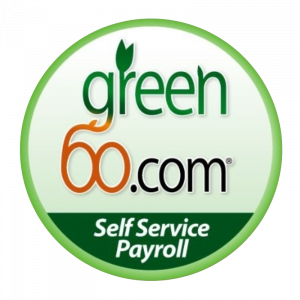A Solo 401(k), (also known as a Self Employed 401(
k) or Individual 401(k)), is a 401(k) qualified retirement plan that was designed specifically for employers with no full-time employees other than the business owner(s) and their spouse(s). The general 401(k) plan gives employees an incentive to save for retirement by allowing them to designate funds as 401(k) funds and thus not have to pay taxes on them until the employee reaches retirement age. In this plan, both the employee and his/her employer may make contributions to the plan. The Solo 401(k) is unique because it only covers the business owner(s) and their spouse(s), thus, not subjecting the 401(k) Plan to the complex ERISA (The Employee Retirement Income Security Act of 1974) rules, which sets minimum standards for employer pension plans with non-owner employees. Self employed workers who qualify for the Solo 401(k) can receive the same tax benefits as in a general 401(k) plan, but without the employer being subject to the complexities of ERISA.
History
Prior to 2001, self-employed workers were limited to a profit sharing retirement plan that did not include any employee deferral options in contrast to a multiple employer 401(k) Plan. There existed a retirement platform unique to self-employed workers, the SEP IRA and the Keogh Plan, but it lacked many of the benefits of the typical corporate 401(k) platform, such as employee deferral. Congress remedied this situation in 2001 with the passing of the Economic Growth and Tax Relief Reconciliation Act Although EGTRRA was primarily known for its tax reductions, it also amended tax law to allow for self-employed individuals to access a 401(k) style retirement platform. This platform became popularly known as the Solo 401(k).
Qualifications
 In order to qualify for a Solo 401(k), an individual must claim some self-employed income. However, he/she does not need to work full time in a self-employed capacity. A common example of part time self-employed income is an individual who works for an employer, but also does a little consulting on the side. The consulting income would be considered self-employed income, thereby rendering the individual’s business eligible for adopting a Solo 401(k). A Solo 401(K) Plan can be adopted by any self-employed business, including a sole proprietorship, limited liability company, partnership, C-Corporation, S-Corporation etc.
In order to qualify for a Solo 401(k), an individual must claim some self-employed income. However, he/she does not need to work full time in a self-employed capacity. A common example of part time self-employed income is an individual who works for an employer, but also does a little consulting on the side. The consulting income would be considered self-employed income, thereby rendering the individual’s business eligible for adopting a Solo 401(k). A Solo 401(K) Plan can be adopted by any self-employed business, including a sole proprietorship, limited liability company, partnership, C-Corporation, S-Corporation etc.
In addition to being self-employed, the business adopting the Solo 401(k) Plan must also not employ any full time employees (with the exception of a spouse.) A full time employee is generally defined as one who works at least 1,000 hours per year for his/her employer.
The two basic types of Solo 401(k) plans are brokerage based and self-directed, also known as a “checkbook control” Solo 401(k). The type of plan is based on the plan documents.
At Green60.com, we provide limited information regarding insurance and financial matters. Green60.com is NOT and insurance agent or broker and we do not offer or sell insurance or financial products. We are not classified as 401k or Sep IRA provider. We have contracted with several reputable companies who offer these types of the services. As a payroll service provider we are more than happy to work with your agent to facilitate this process. Through our payroll system we can deduct and transfer the designated funds from your account to the investment company.Click for Free QuoteMore Information

